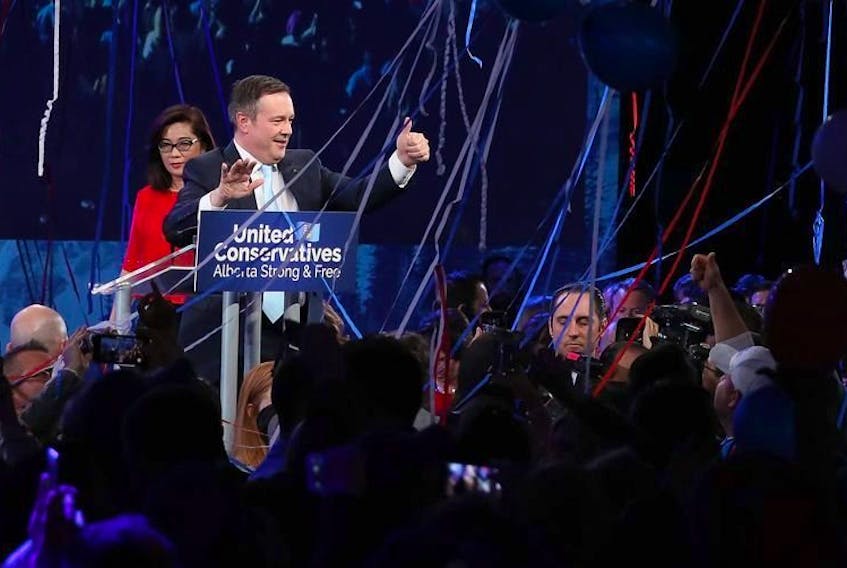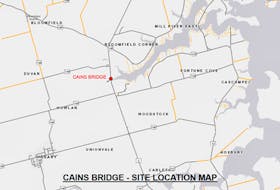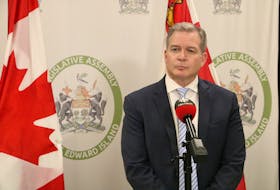Jason Kenney’s landslide win in Tuesday’s general election adds Alberta to the growing list of recent conservative-leaning provincial victories, following New Brunswick, Quebec and Ontario.
With two Atlantic provinces now led by Liberal premiers about to head to the polls and a federal election looming, SaltWire asked experts to weigh in on the potential of a blue wave in a region that’s currently quite red.
Liberals fight federal frustrations
'It’s significant that the Liberal party here in P.E.I., the governing party, has not brought in their friend Justin Trudeau for the campaign.'
- Don Desserud, political science professor, UPEI
Cape Breton University politics professor Tom Urbaniak said while a conservative victory in Alberta — a province where conservative populism has been a mainstay of the political culture — should not be taken as precedent-setting for the rest of the country, it’s not without broader significance.
“We’re living in a very unstable time. Old political loyalties are no longer holding. The traditional politics is on the back burner. P.E.I. was once the poster child (for) traditional liberal-conservative politics and now we’re seeing some polls showing the Greens in a very, very good position,” he said. “So there are implications in the sense that all bets are off across the Western world when it comes to elections.”

Voters who are frustrated with the status quo are likely watching how other elections in other parts of the country have unfolded, said Don Desserud, political science professor at UPEI.
“There are different ways to read the Alberta election. One way is that it’s a return back to the norm, which is back to a conservative government, even if it’s a reconstituted conservative party. There’s a possibility of that happening here — though maybe a little too late,” he said.
Desserud noted that in recent polls, the Green Party, led by Peter Bevan-Baker, is still at the top, but the Progressive Conservatives, led by new leader Dennis King, have been gaining momentum and closing the gap. Meanwhile, the Liberals, led by premier Wade MacLauchlan, have been behind. P.E.I.’s election is on April 23.
“It’s significant that the Liberal party here in P.E.I, the governing party, has not brought in their friend Justin Trudeau for the campaign ... there seems to be a frustration with the federal Liberals and that is probably hurting the provincial liberals,” Desserud said.
But he isn’t certain if this frustration will play out the same way federally.
“Andrew Scheer is not seen as a friend of the region. That might not be fair, but I think that’s the perception. That changes the dynamic, so people will be looking at choices differently,” he said. “People may decide to stick with the Liberal candidates or look at a different alternative altogether.”
Conservative uptick or Liberal backslide?
'it means one fewer potential ally for Nova Scotia in some of the federal-provincial negotiations... I would not be surprised to see some alignment between the government of New Brunswick and the government of Alberta.'
- Tom Urbaniak, professor of politics, Cape Breton University
Alex Marland, professor of political science at Memorial University said for Newfoundland and Labrador, the Alberta election results, which saw a minuscule one per cent of the vote go to the Grits, is more of a gauge of momentum for the federal Liberals than it is a precursor for what might happen provincially.
Marland said unlike the provincial and federal Liberal parties, the provincial conservative parties — Progressive Conservative in the Atlantic region and United Conservative, a merger between the PCs and Wildrose, in Alberta — don’t officially affiliate with the federal Conservative party, and voters are also reluctant to draw that line.
“The Liberal brand at the moment has been going through quite a number of difficult experiences, so it’s almost like one more thing, it builds on that. It does give conservatives momentum but ... it’s more of a rejection of the Liberals in some ways,” Marland said.

He added that provincial politics in Newfoundland and Labrador can sometimes be closed off from what’s happening in the rest of the country, with the public and the media giving little air time or consideration with the goings-on elsewhere.
Recent polls in Newfoundland and Labrador show a fairly tight race between the governing Liberals led by Dwight Ball and the Progressive Conservatives led by Ches Crosbie, son of prominent Newfoundland politician John Crosbie. Newfoundland and Labrador will head to the polls on May 15.
As for Nova Scotia and New Brunswick, which don’t have imminent general elections, there are still implications when it comes to Alberta’s new government.
“Certainly it means one fewer potential ally for Nova Scotia in some of the federal-provincial negotiations that will ensue,” Urbaniak said.
Meanwhile, he said, the current Progressive Conservative government of New Brunswick led by premier Blaine Higgs, will find an ally in Kenney on some fronts, like the fight against the carbon tax.
“I would not be surprised to see some alignment between the government of New Brunswick and the government of Alberta on Energy East and other files,” he said.
Also worth noting are the thousands of Atlantic Canadians that seek work in Alberta each year.
“Some of those people have been staying home because the contracts simply aren’t there ... people who are affected by that downturn directly are looking for any policy intervention that might turn things around,” Urbaniak said. “To say that a downturn was because of the Notley government, however, would be far too simplistic, but of course if there is any upturn, the new government will take credit for it.”
Finally, Urbaniak said there will be other, wider implications for the entire federation that will be felt in the Atlantic region.
“We will see a very aggressive Alberta government challenging the federal government on a number of fronts, and also challenging some of the core concepts of the federation. We’ve already heard Jason Kenney calling into question some of the principals of equalization, and even threatening court action,” Urbaniak said. “And for a region like ours that relies to a significant extent on equalization and federal investment, that is a cause for concern.”
RELATED;









